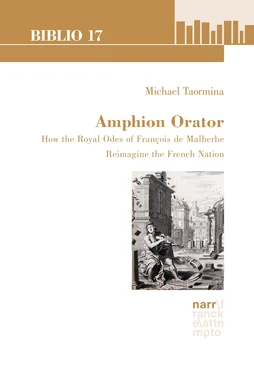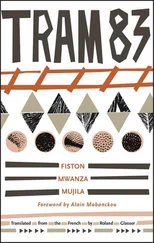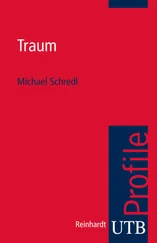Michael Taormina - Amphion Orator
Здесь есть возможность читать онлайн «Michael Taormina - Amphion Orator» — ознакомительный отрывок электронной книги совершенно бесплатно, а после прочтения отрывка купить полную версию. В некоторых случаях можно слушать аудио, скачать через торрент в формате fb2 и присутствует краткое содержание. Жанр: unrecognised, на английском языке. Описание произведения, (предисловие) а так же отзывы посетителей доступны на портале библиотеки ЛибКат.
- Название:Amphion Orator
- Автор:
- Жанр:
- Год:неизвестен
- ISBN:нет данных
- Рейтинг книги:4 / 5. Голосов: 1
-
Избранное:Добавить в избранное
- Отзывы:
-
Ваша оценка:
- 80
- 1
- 2
- 3
- 4
- 5
Amphion Orator: краткое содержание, описание и аннотация
Предлагаем к чтению аннотацию, описание, краткое содержание или предисловие (зависит от того, что написал сам автор книги «Amphion Orator»). Если вы не нашли необходимую информацию о книге — напишите в комментариях, мы постараемся отыскать её.
Amphion Orator — читать онлайн ознакомительный отрывок
Ниже представлен текст книги, разбитый по страницам. Система сохранения места последней прочитанной страницы, позволяет с удобством читать онлайн бесплатно книгу «Amphion Orator», без необходимости каждый раз заново искать на чём Вы остановились. Поставьте закладку, и сможете в любой момент перейти на страницу, на которой закончили чтение.
Интервал:
Закладка:
megalopsychosmagnanimityEvery one of Malherbe’s odes contains at least one term related to wonderwonder ( merveille , miracle , étonnement ), while the events and the deeds they describe, not to mention the rhetorical devices they use, are deeply infused with this protean emotion. Aligned with Henri’s broader ideological program, this poetic production of wonderwonder has two purposes. The first is to demobilize political resistance to the Bourbons. Contemplative feelings inspired by the miraculous turn of events, by the extraordinary virtuevirtue of the historical actors, or by the inscrutable destiny of France, transform both greater and lesser subjects into spectators whose fear and reverence encourage them to accept forces beyond their control. The second purpose, more active, is to transport the subject “beyond logical demonstration” (BiesterBiester, James 44). Such emotionemotional force serves the loftier ambitions of the royal odes, namely to renovate the monarchy and to instill a sense of unity in a fractured nationnation.
pathosproofThe goal of inspiring subjects with feelings of wonderwonder for the Bourbons is indeed an attempt to sacralize, or re-sacralize, the new monarchs. However, such sacralization was filtered through a reinvigorated national sentimentnationnational sentiment in the early seventeenth century, and to that end, the royal odes aimed to restore the prestige and authority of the monarchy itself:
| Le fameux Amphion, dont la voix nonpareille, | |
| Bâtissant une ville étonna l’univers, | |
| Quelque bruit qu’il ait eu, n’a point fait de merveille | |
| Que ne fassent mes vers. (vv. 149-156) | |
| [The famous Amphion, whose incomparable voice / Astonished the universe by building a city, / Whatever fame he may have had, has not accomplished any greater wonder / Than my own verse.] |
Taken from the final ode of the sequence, “Ode pour le roi allant châtier la rébellion des Rochelois” (1627; 1635), this stanza looks back on Malherbe’s career and asks the reader to rate his achievement as no less marvelous than AmphionAmphion building the walls of Thebes. By grounding the unity of the nationnation inpatrienation something other than the Catholic faith, the royal odes claim they have erected ideological ramparts around the monarchy more effective than any physical wall. The stones, as it were, are the hearts of the French people moved by the odes’ eloquenceeloquence and henceforth united in support of an ethnically French monarchy, as required by the Salic Law. The mythical city that the odes claim to have built represents the new nationnation. Of course, it is less a place or a territory than an imagined community expressed in the form of a patriotic ethospatriotismpatriotic ethos modeled on the monarch, the nationnation’s protector and embodiment, and defined as loyalty and service pro rege et patria pro rege et patria [for king and fatherland].9 The creation of this new national communitynationnational community bound by affective ties between monarch and subject, as well as among subjects, is the highest purpose and final end at which the royal odes take aim.
King, monarchy, nationnation: the odes indeed reimagine all three. A new image for the monarch presupposes a new image of the monarchyimageof the monarchy, and this in turn rests on a new image of the nationimageof the nation. The first two are evident in the odes; the last is more difficult to perceive. Nowhere do the odes use the term patrie nationla patrie [fatherland; nationnation; country], a neologism in sixteenth-century France. Instead, they use the collective “nous” [we, us], sometimes refer to “France” and “les Français” [the French], and mention recognizable enemies of the monarchy and the French: “Espagne” [Spain], “les Anglais” [the English], the Holy Roman Empire (“l’aigle”), the Ottoman Empire (“l’infidèle Croissant” [infidel Crescent]), and a few minor antagonists. However, the concept is always there, lurking like a noumenal ground requiring close reading, logical inference, and affective sensibility to be apprehended. The excellence, remoteness, and knowability of the nationnation in the royal odes belongs to the same “‘ancient dilemma of knowledge and representation’” affecting the objects of faith in sacredeloquencesacred oratory oratory.10 Similar to a Christian orator charged with bringing the objects of faith, the most remote and the most worth knowing, into some kind of relationship with what human beings are able to grasp, Malherbe uses mythologymythology and figures of thoughtfigures of thought to strike the imagination of his contemporaries and fill their hearts with emotionemotions attaching them to the new national communitynationnational community. The words “étonner” (to astonish) and “merveille” (marvel, wonderwonder) of the somewhat obscure analogyproofanalogy in the stanza above (Malherbe : nationnation :: AmphionAmphion : Thebes) indicate which feelings contemporary readers—including a young Louis XIII—were supposed to experience once they had solved the stanza’s riddle and—only then—accurately reckoned the central role that the royal odes allege to have played in the rebirth of France following the Wars of Religion.
The Malherbe that emerges from this interpretation of the odes is still the consummate craftcraftsman, but one who also dared to claim a political voice for himself. The mythological figure of AmphionAmphion symbolically reunites the disunion that CiceroCicero lamented in De Oratore CiceroDe Oratore (1.8.33-44), the divorce of phronēsis phronēsis from eloquenceeloquence, ofpractical reasonphronēsis the practical wisdomphronēsisman of action from the man of words. What substitutes for this lost unity is the dyad of monarch and poet, which the royal odes recoup from the social practice of literary patronage. When Henri IV selected Malherbe, in his capacity as poet, to speak for the new dynasty, he did so knowingly and purposely. This alliance of king and poet marked a return to a normal state of affairs following the religious warsreligious wars.
One must recall that poetry at this time had not yet achieved literary autonomy. Poets relied on royal and aristocratic patrons for financial and political protection, and this dependence forced poets to straddle conceptually distinct categories: poetry and politics, eloquenceeloquence and virtuevirtue, and two kinds of ethosethos—the rhetorical and the moral. How did these arrangements work? As Peter W. Shoemaker so beautifully explains in Powerful Connections: The Poetics of Patronage in the Age of Louis XIII , the monarch, members of the royal family, powerful nobles and prelates, and upwardly mobile bourgeois, all seeking the prestige conferred by belles-lettres, collaborated with poets to use poetry in the service of social standing and political influence. They looked to poetry to craft idealized representations of their characterethoscharacter—a kind of public imageimagepublic image destined for their literate peers—while poets did not miss the opportunity to use such alliances to promote their own work, often portraying themselves in similarly idealized terms. No longer mystics, prophets, or religious militants, early seventeenth-century poets became spokespersons addressing elites on behalf of elites. Malherbe was not the first but certainly the most visible to turn away from the humanist audience of Ronsard toward courtcourt (royal)ly elites, which by default included in their numbers some erudite Gallicans and Jesuits but were composed mostly of relatively uneducated aristocratic connoisseurs of belles-lettres.
In the first decade of the seventeenth century, literary patronage was only beginning to get back on its feet. Prolonged military conflict had suppressed the normal levels of literary and cultural production. In his monumental Histoire de la littérature française au XVIIe siècle , Antoine Adam sneeringly asserts that Henri IV was “profoundly indifferent to literature, concerned only with repairing the country’s finances” (Adam, Histoire vol. 1, 24). But royal finances were in genuine disarray after more than three decades of civil war, and Henri had promised large sums to LeagueLeaguer governors to secure their submission to his authority. Real financial worries motivated Henri IV’s placement of Malherbe not in his own clientele, but that of the duke de BellegardeBellegarde, Roger de Saint-Lary de Termes, seigneur de. However, without a political use for the poet, such a shrewd politician as Henri IV would not have bothered at all. The first odes, enhancing Henri IV’s personal image, were meant to play a part in the king’s broad and on-going public relations campaign. It was understood that Malherbe was the king’s man.
Читать дальшеИнтервал:
Закладка:
Похожие книги на «Amphion Orator»
Представляем Вашему вниманию похожие книги на «Amphion Orator» списком для выбора. Мы отобрали схожую по названию и смыслу литературу в надежде предоставить читателям больше вариантов отыскать новые, интересные, ещё непрочитанные произведения.
Обсуждение, отзывы о книге «Amphion Orator» и просто собственные мнения читателей. Оставьте ваши комментарии, напишите, что Вы думаете о произведении, его смысле или главных героях. Укажите что конкретно понравилось, а что нет, и почему Вы так считаете.












